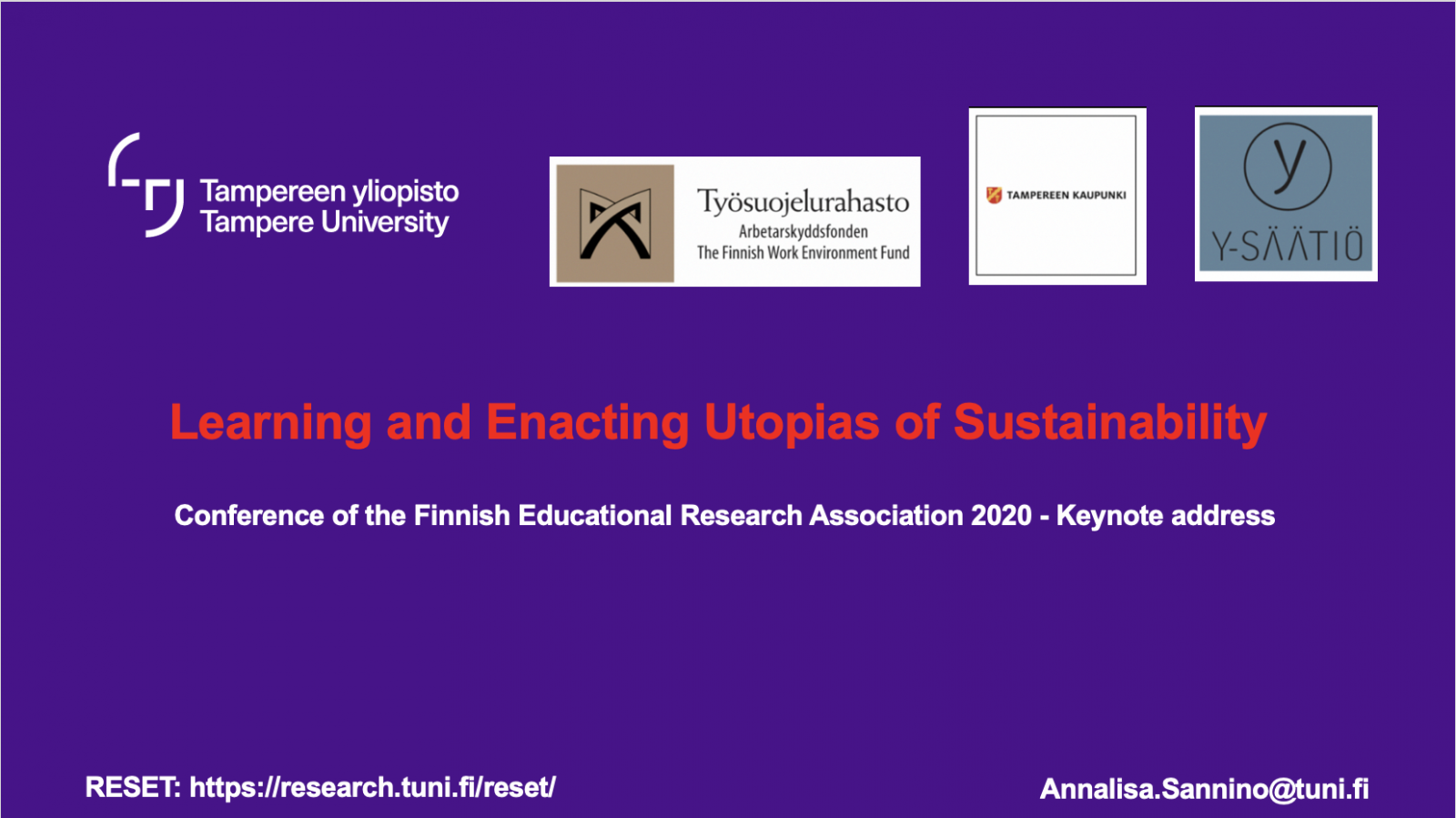Professor Sannino was invited to give a keynote speech at the Annual Conference of the Finnish Educational Research Association, organised by University of Helsinki in December 2020.

Sannino during the keynote
Abstract:
Contemporary challenges of sustainability are essentially challenges of learning how to operate on the basis of concerted initiatives rather than only within individual sectors and organisations and by top-down orientations. It is quite astonishing that despite widespread awareness about large numbers of people living in extreme poverty and the urgent climate crisis, communities and organizations have great difficulties to find ways to act effectively and to jointly meet these challenges.
Against this background, it appears that our educational systems and dominant practices of learning have largely failed to generate the most important human quality, namely the capability to join forces and change the course of unsustainable conditions of living and being. The field of the learning sciences still lacks robust frameworks to grasp how different sectors and organisations learn to act coherently and effectively for making equity, social and environmental justice, a sustained reality. Also, it is unclear how research in this field can concretely contribute to such learning. This keynote presents a theoretical argument supported by an empirical example claiming that educational research and, more specifically, the field of the learning sciences, have resources at their disposal which can play a key role in filling this gap.
The empirical example stems from a fourth generation activity theory study on eradicating homelessness in Finland. The study involved Change Laboratories conducted at the level of a supported housing unit for youth with a history or at risk of homelessness, at the city level (with one of the largest municipalities in Finland) and at the national level (with organisations and actors including the director of the national programme for the prevention of homelessness from the Ministry of Environment, four prominent NGOs, six cities, the nationwide homelessness developers network, and the largest non-profit provider of socially supported housing in the country).
Differently from critical studies which too frequently highlight only limitations and scenarios of despair, the approach adopted here prioritizes the documentation of how innovative solutions, often considered utopian, actually come about and can be maintained, despite obstacles and setbacks. Also, differently from the dominant literature on learning as a vaguely defined process of acquisition and co-construction of new knowledge, this approach sees learning for sustainability as a longitudinal process of stepwise learning actions which are most of the time very difficult to undertake but eventually do come together and intersect with one another.
The take-away message of this keynote is that the future of educational research lies in its ability to disclose how utopias of sustainability are de facto being enacted, what learning these involve, how theories can concretely mediate and support the enactment process, and ultimately how educational research can become a key player in practical struggles for sustainability.

